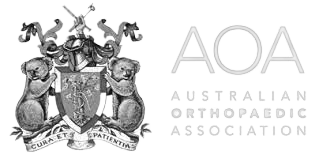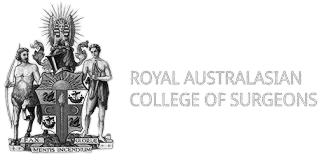First Visit
Our aim is to provide you with all the information needed to make informed decisions about managing your health.
Booking Your First Visit
Our doctors consults at a number of locations. To book an initial consultation please either
- Phone our rooms at (02) 6492 6013
- Book HERE
Urgent Appointments
Advise the staff if the matter is urgent and we will endeavour to arrange an expedited appointment.
Plan With Notes
It’s easy to forget all the questions you wish to discuss once in front of the doctor. We recommend you prepare a list of questions you want to discuss.
Referral Information
Anyone can make an appointment to see a doctor.
Valid Referral
With a valid specialist referral, you will receive a Medicare rebate The referral must be current and come from general practitioner or another specialist.
You can make an appointment and then arrange for your general practitioner to fax through a referral prior to your appointment date.
What to Bring?
Please plan your appointment appropriately or reschedule if necessary.
Prepare to arrive 15 minutes before your allocated appointment time as you will be asked to complete some paperwork.
Bring all relevant information as listed below:
Medical Information
- List of Current Medications,
- List of any allergies to pharmaceuticals or other,
- Prior X Rays, MRI or CT scans
- Copies of Pathology Reports
- Your Medical and Family History
- Allergies to pharmaceuticals or other
- Is the problem work related?
Personal Information
- Referral Letter (GP, Doctor or Physio)
- Drivers license or valid ID
- Medicare, DVA or Pension Card
- Private Hospital Insurance Details
- Employer’s Letter (if Work cover) and a current claim and approval from their case manager
Other
- Current Diet and Exercise
- Relevant Journal or Travel Plans
Prepare a list of questions you want to ask your doctor about your problem or concerns. It’s easy to forget what you wanted to discuss once you are at the appointment.
During Your First Visit
You should expect to be greeted at reception upon arrival and then seen by the doctor.
Medical History
During your first visit you and the doctor will discuss:
- General health and Medications,
- Previous problems, & Family history,
- Current symptoms and related health,
- Previous diagnostic imaging, and
- Risk factors, lifestyle and family history
Honesty is important as it provides all the information needed to assess and properly treat you.
Physical Examination
It is important to be as relaxed as possible during any examination. Try taking deep slow breaths, relax and think of something pleasant can help if the doctor needs to perform a clinical examination here.
Diagnostic Imaging
You may require more diagnostic testing to confirm the doctors diagnosis.
Ask Questions?
We want you to feel free to discuss openly any questions or voice any concerns you may have without reluctance or hesitation, as anything dealing with your health is of extreme importance.
It is important that you clearly understand your options including:
- What is the full diagnostic process?
- Are you a candidate for various treatments?
- Is surgery an effective treatment and what are the options?
- What are associated risks and complications?
- What Can you expect after treatment?
- What is the postoperative care plan?
After Your First Visit
Diagnosis
After reviewing any diagnostic results, your doctor will recommend appropriate treatment.
Any referring health professionals are kept informed of all diagnoses and the treatment plan. A written report is sent to your referring doctor within a week of your visit or earlier if required urgently.
Treatment Options
Where a Treatment Option is recommended you may need to understand and consider the following:
- Further preoperative medical evaluations to determine suitability for the procedure,
- Further diagnostic evaluations including pathology and imaging,
- Potential risks and complications
- Planning and recovery time
- Counselling to ensure that the informed consent obtained is fully understood.
Suitability for Treatment
Qualifying factors for surgery may include:
- History of dietary and other weight loss attempts,
- Commitment to lifestyle changes, exercise & clinical follow-up
- Psychological evaluation
Be Aware of
- Infections - these can delay a procedure until it is cleared,
- Tooth, gum, bladder or bowel problems to reduce complications,
- Anti-inflammatory medications (NSAIDs) or other medications that may need to be paused,
- Stop smoking to reduce your surgery risks and improve recovery
- Consider losing weight (if overweight)
Recommendations
If you have any specific concerns or fears regarding your condition or treatment we recommend contacting the practice for clarification.
Appointment Policy
Your time is valuable. Our practice endeavours to run on schedule and your punctual attendance will assist this. Feel free to ring us 30 minutes prior to your appointment to confirm if your we are running on time.
Late Arrivals
We do understand that circumstances may arise unexpectedly, however, late arrivals can compromise the service we are able to provide to you, and can also inconvenience other patients.
We will do our best to accommodate late arrivals, but in some instances, appointments may need to be rescheduled.
Cancellation Policy
We do ask that you contact us and give at least 24 hours notice should you need to reschedule or cancel your booking.
Due to the difficulty of filling last-minute cancellations, and if we are unable to book an alternative patient, it will be necessary to charge a $50 fee for missed appointments or last-minute cancellations.
Regular cancellations or cancellations with less than 24-hour notice may incur a cancellation fee.
We consider this a last resort, as our motivating concern is the quality of service we are able to provide you and our other patients.
No Show Policy
For unattended appointments without notice, we may charge a $50 fee.
We may require a credit card on file to reserve your appointment. If you don’t have your credit card on file, you may only be allowed to come in on a walk-in basis if available.


